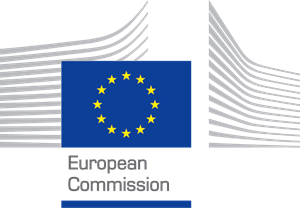Improving catalytic processes for the industrial integration of artificial photosynthesis.

PHOTOSINT: Photoelectrocatalytic systems for solar fuels energy integration into the industry with local resources.
The PHOTOSINT project presents solutions to the challenges chemical industries are facing in integrating renewable energy sources into their processes. In particular, the project delivers sustainable processes to produce hydrogen and methanol as energy vectors using only sunlight as an energy source and wastewater and CO2 as feedstocks, making the industries more auto sufficient.
The pathway is based on solar driven artificial photosynthesis and aims to develop new catalytic earth-abundant materials and modifications of existing ones to improve catalytic processes. Design parameters of the PEC cell are tuned to maximize solar to fuel (STF) efficiency. Moreover, to improve the conversion for industrial implementation, PHOTOSINT develops a novel way to concentrate and illuminate the semiconductor surface to maximize overall energy efficiency. Perovskite solar PV cells are integrated to harvest the light to supply the external electrical voltage.
PHOTOSINT is an ambitious project due to precedents in research conducted to date and the low production rate of the desired products. For integrating sunlight energy into the industry, the catalyst is studied, and then the best one/s are implemented in prototypes. The obtained results are used for making scale-up in pilots with tandem PEC cells. These steps are necessary to assess the industrial scale-up feasibility, promoting the increased competitiveness of renewable process energy technologies and energy independence.
MeOH and H2 are tested in engines. Also, an HTPEM fuel cell is used for electricity generation, and hydrogen is tested as an alternative fuel for energy generation instead natural gas in melting furnaces avoiding CO2 emissions.
Our main tasks
- Project management.
- Systems components deployment and integration design.
- Integration and assembly of pilots.
- Objective function selection and variables optimization definition.
- Development of a holistic mathematical model for the platform.
- Process multidisciplinary design optimization.
- Simulation of mini-solar PV plant for industrial integration.
- Updating models with results from pilots for energy integration.
- Assess scale-up of the technology to meet energy needs.
- Final design, products integration into industries and energy integration.
- Process validation and replication to other sectors.
Partners
AZOMURES | BIOENERGY NIGRITAS | CSIC | EESTI MAAULIKOOL | HYSYTECH | ICIQ | IDENER.AI | KEMIJSKI INSTITUT | KNEIA | REDOXME | RINA CONSULTING | STEKLARNA HRASTNIK DRUZBA | TORRECID | UNIVERSITE PARIS CITEStart date – finish date
09 / 2023 - 08 / 2027

This project has received funding from the European Union’s Horizon 2020 research and innovation programme under grant agreement Nº 101118129

